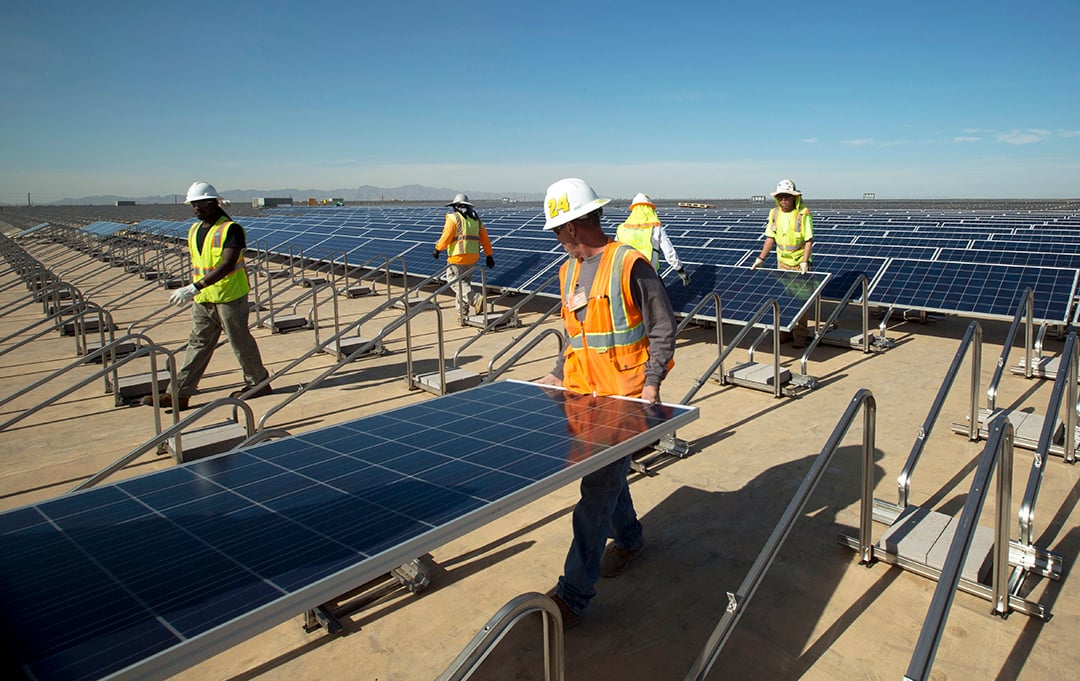
Image Source: Google
As businesses are increasingly focusing on sustainability and reducing their carbon footprint, the use of solar panels in commercial settings has gained significant traction. Solar energy not only helps in cutting down electricity costs but also contributes to a cleaner environment by reducing greenhouse gas emissions. If you want to know more information about solar panels commercial, you can explore this site.
The Benefits of Solar Panels for Businesses
Implementing solar panels in commercial settings offers a wide range of benefits for businesses:
- Cost Savings: Solar panels can significantly reduce electricity bills for businesses, leading to long-term cost savings.
- Environmental Impact: Solar energy is a clean and renewable source of energy, helping businesses reduce their carbon footprint and contribute to a sustainable future.
- Revenue Generation: Excess solar energy generated by commercial solar panels can be sold back to the grid, providing an additional source of revenue for businesses.
- Energy Independence: By generating their own electricity through solar panels, businesses can reduce their reliance on traditional energy sources and achieve energy independence.
Technological Advancements in Solar Panels
Recent advancements in solar panel technology have made them more efficient and cost-effective for commercial use:
1. Thin-Film Solar Panels
- Thin-film solar panels are lightweight and flexible, making them ideal for commercial buildings with limited roof space.
- They are also more aesthetically pleasing, blending seamlessly into the architecture of the building.
2. Bifacial Solar Panels
- Bifacial solar panels can capture sunlight from both the front and back surfaces, increasing energy production by up to 20%.
- They are highly efficient in generating electricity, making them a popular choice for commercial solar installations.
3. Energy Storage Solutions
- Energy storage solutions such as batteries allow businesses to store excess solar energy for use during periods of low sunlight or high energy demand.
- This enables businesses to maximize their energy savings and reduce peak-hour electricity costs.
Government Incentives for Solar Panel Installation
Many governments offer incentives and rebates to encourage businesses to adopt solar energy. Some of these incentives include:
- Solar Investment Tax Credit (ITC): Businesses can claim a federal tax credit of up to 26% of the cost of installing solar panels.
- Accelerated Depreciation: Businesses can depreciate the value of solar assets over a shorter period, providing additional tax benefits.
- Feed-in Tariffs: Some regions offer feed-in tariffs for businesses that generate excess solar energy and feed it back into the grid.
Future Trends in Commercial Solar Panel Installations
Looking ahead, several trends are shaping the future of commercial solar panel installations:
- Smart Solar Systems: Integration of IoT technology and smart meters in solar installations for enhanced monitoring and optimization of energy production.
- Community Solar Projects: Businesses can participate in community solar projects to access solar energy benefits without having the panels installed on-site.
- Energy Management Software: Adoption of energy management software for better control and management of energy usage in commercial settings.
In conclusion, the future of solar panels in commercial settings looks promising, with businesses reaping the benefits of cost savings, environmental sustainability, and energy independence. By embracing solar energy and leveraging technological advancements, businesses can power up their operations while contributing to a cleaner and greener future.

